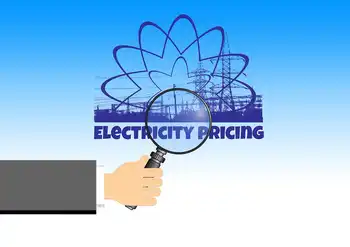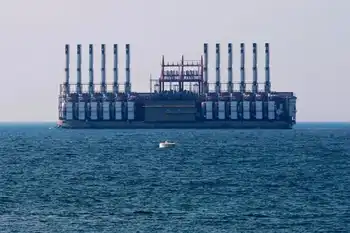Ontario utilities want compensation for conservation
By Toronto Star
Arc Flash Training CSA Z462 - Electrical Safety Essentials
Our customized live online or in‑person group training can be delivered to your staff at your location.

- Live Online
- 6 hours Instructor-led
- Group Training Available
A coalition of the big utilities from Greater Toronto and Hamilton told the Legislature social affairs committee recently that the proposed legislation doesn't address that key concern.
Local utilities now receive a fee for every kilowatt-hour of power they deliver to their customers. If they encourage conservation and reduce the volume of power they deliver, they lose revenue and probably profits.
"We're willing to work shoulder to shoulder with the government to make sure conservation goes 100 per cent," said Gunars Ceksters, who acted as spokesperson for the group. "But we want to make sure that there's some mechanism for recovery."
Ceksters, who is chief executive of Enersource Corp., which owns Enersource Hydro Mississauga, spoke in an interview after addressing the committee in Ottawa.
Energy Minister Dwight Duncan has said he wants to create a "conservation culture" in the province.
But while natural gas utilities are able to reap financial rewards if they meet conservation targets, the new legislation doesn't set up a similar system for electric utilities.
Many of the legislation's proposals are welcome — such as setting up a new system of stable but market-based pricing for consumers — but the potential revenue loss is a problem, he said.
"We're willing to work with it, but not if we're going to be losing our revenue," Ceksters said. "Why would we start turning our meters off, so to speak?"
The utilities and the Independent Electricity Market Operator, or IMO, do not appear enthusiastic about the proposed Ontario Power Authority. The authority would draw up a long-term power plan for the province, and would have the power to sign long-term contracts with generators to ensure its delivery.
The big utilities said the authority should be "transitional" and the province should consider phasing it out or scaling it back eventually.
"There are a lot of bureaucratic agencies now in place," Ceksters said.
"We're just concerned that creating an additional agency will make it difficult for the market to work properly."
Dave Goulding, chief executive of the IMO, noted that both the IMO and the power authority will have responsibility for electricity planning.
Utilities and generators could get mixed signals if the IMO's plans for the shorter term don't mesh well with the power authority's longer-term plans, he said.
There's also a danger of the two agencies duplicating planning staffs, he said.
The IMO, which already has a planning staff, could contract to do much of the power authority's work according to the authority's directives, Goulding suggested.











